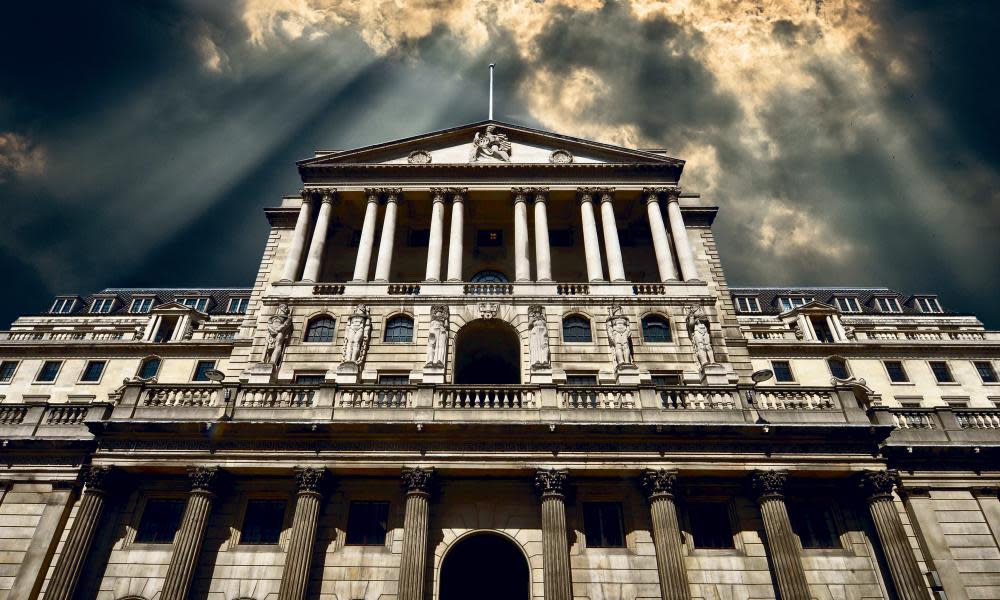The City may thrive despite Brexit, but the rest of us won’t

An iron law of modern British government says that whatever London wants, London gets. On Monday, with no fuss or publicity, the Bank of England and a group of City interests reached an apparently boring deal in Paris with the European Security and Markets Authority. It follows a similar deal with the European commission last December. Both state, in effect, that, as far as the City is concerned, if there is a no-deal Brexit, Brexit did not happen. It was just play-acting by idiots down the road in Westminster.
Up to £41tn in financial guarantees, insurances, hedges and other derivatives, all within the EU’s regulatory regime, is said to be at risk in the City’s clearing houses. For everyone involved, this is a grownup business, not to be left to the mercies of the likes of Boris Johnson and Jacob Rees-Mogg. The regulators have duly issued licences to the clearing houses, allowing Europe’s banks to disregard EU rules and continue trading on London’s derivatives platforms. Financially speaking, London is to become a “free port”. Sighs of relief all round.
Brexit will mean Tories taking Britain back to state intervention by the back door. Vote Tory, vote nationalisation
The City deal is, of course, a special case. It is in the EU’s interest as much as in Britain’s, and not reaching it would have been mildly catastrophic. “The important thing is we have certainty,” David Bailey of the Bank of England told the Financial Times. “We have time to reflect on what the future arrangements will look like.” Or as Steve Grob of ION Markets – its motto: We need to disrupt the status quo – declared: “You can’t start moving trillions of dollars of business overnight.” The deal was “welcome common sense and practicality on what was a trillion-dollar game of chicken”.
The chickens can eat their hearts out, along with their farmers. Britain’s car industry can tear its hair. Its plane-makers can get stuffed, along with the food retailers, drug companies, care homes, builders and truckers. They can all go down on their knees and pray to the Johnsons and Rees-Moggs to send round their promised “deals with the rest of the world”, supposedly bringing crocks of gold, one day. Not for them a light lunch in Brussels, a pat on the back in Paris, a quiet handshake and let’s call it a bad dream.
Everyone’s business, not just financial speculation, is vulnerable to uncertainty. Sheep farmers face destitution with a potential 40% EU tariff. They have no friends shuffling back and forth to Brussels and Paris, to ensure that for them Brexit does not mean Brexit. Thousands of businesses get no sweetheart deals, just orders to reject customs unions and welcome “WTO terms”.
The fate of one such group, the farmers, is in the hands of the agriculture secretary, Michael Gove. While I have some sympathy with his scepticism towards EU membership, I have none for his desire to leave Europe’s single market and customs union. At present, his brain is enduring an exotic evolution as it comes face to face with what Brexit means in real life, far from the drawing rooms and thinktanks of Westminster. Its “vast benefits” are plain invisible in the muddy farmyards of Britain. Gove’s speech to the National Farmers’ Union on Tuesday was therefore a desperate bid to rescue farmers from the consequences of his own folly, with masses of public money.
Gove promised current farm subsidies would continue undiminished to 2022. He proposed to impose tariffs on food imports, so farmers would not face “competitive disadvantage”. He pledged “direct cash support” for any farmers suffering “extreme market disturbance”, presumably a reference to Brexit. He even boasted a “pilot seasonal worker scheme”, pretending to replace some 20,000 EU workers in the fruit and vegetable sector with 2,000 non-EU migrants. Lest the latter come from unacceptable parts of the world, his intention is to replace Bulgarians and Romanians with a handful of Ukrainians and Moldovans. What on earth is the point?
All we see here is British agriculture slithering towards the blanket state protection, aid and regulation that assails all isolationist economies. But agriculture is just 0.5% of British GDP. Manufacturing is 19%.
Whether from fairness or political necessity, the same help must surely be extended to other industries hit by Brexit blight, such as motors, pharmaceuticals and aeroplane manufacture. If excluded from the EU and its trading partners by WTO tariffs and a refusal to obey EU regulations, these industries will understandably demand compensation. They will plead for continued subsidy, as they did in the 1950s and 60s.
Gove could not be clearer. Brexit will mean a Tory party taking Britain back to state intervention by the back door. So much for the global free market promised by Brexit’s only economic guru, Patrick Minford. Vote Tory, vote nationalisation.
The real gap that Brexit will widen yet further is not just between financial services and trade in food and manufactures. It is between London and the rest of the country. Already the Treasury’s staggering £4.2bn “for Brexit preparations” is tipping jobs into the capital. The greatest irony is that London and the south-east of England, which voted overwhelmingly for remain, will emerge from a hard Brexit richer than ever. It is the provinces that voted leave that will suffer. Manufacturing will slide towards recession, while Londoners smile all the way to the bank – a bank for which Brexit will not exist.
• Simon Jenkins is a Guardian columnist

 Yahoo News
Yahoo News 
